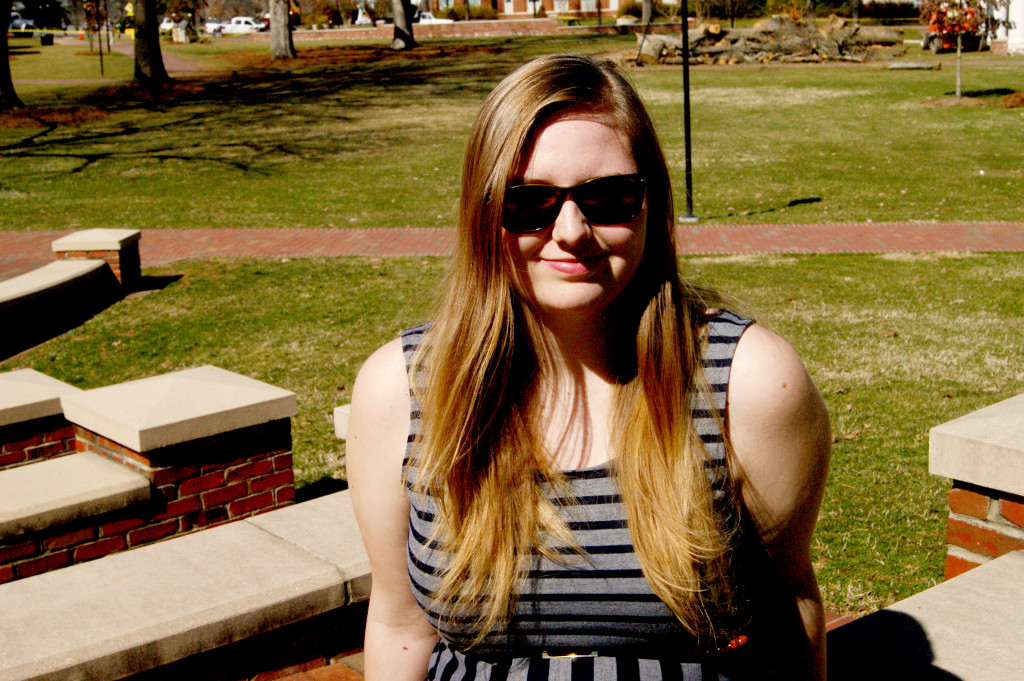This week is the first of several that will focus on highlighting research done by Professional Writing and Rhetoric students at Elon. For this week, I interviewed Sarah Paterson, a junior PWR major with minors in communication and political science and an Elon University Honor’s Fellow.
Being introduced to multicultural rhetoric
Upon being asked for an overview of her research, Paterson said that she is looking at spoken word and performance poetry of teenagers to look at how they use multicultural rhetoric. She credits the article “Multiculturalism, Rhetoric, and the 21st Century” by Steven Goldzwig with her understanding of multicultural rhetoric.
“In this article, [Goldzwig] argues that the future of rhetoric is in multiculturalism and that it is, and will be, inherently political by nature. He gives these three of what he calls ‘dialectical tensions of rhetoric’ that characterize multicultural rhetoric – difference in identity, voice and silence, and power and authority. Basically I’m looking at kids’ performances and if they talk about these things and if these three tensions are present in their performances; if not, what are they talking about?”
On the subject of how successful this theory seems to play out in practice, Paterson stated, “Is he right? I think he is, so far.”
Not only is Paterson interested in the topic of multicultural rhetoric, she relates on a deeper level to the students employing it.
“I’m just excited for a room full of kids who are not afraid to say what’s going on in their head. I’m really impressed by people that age who are willing to say what they think without reservation.”
Drawn to spoken word & performance poetry
When asked about what drew her to her research, Paterson recalled her experiences with the Duke Young Writers Program and how it shaped her view of writing and writing communities.
“Since I was 13 years old, I’ve been going to this summer camp at Duke, the Duke Young Writers Program, and I was there as a camper for 4 years, and I now work there [and have for 3 years]. When I was there as a kid, it was just like this magical kind of fantasy place, it wasn’t real life, it was a place where people liked and supported each other and did creative things in their spare time and also played guitar and, you know, like were not afraid to be themselves. It seemed like a place outside of middle or high school.
That was a thing that I really, really loved as a kid and didn’t find at all in the community where I grew up. When we moved to Chapel Hill, a friend of mine who had been in camp with me was like ‘Hey, there’s this slam poetry contest, do you want to come with me?’ I was taking a gap year so I was like, why not. And I got there, and it felt kind of like camp.
I started going to all of their events. Every once in a while someone would do a really good poem and I would be such a fangirl, I would go up to them and be like ‘I loved that poem, it was really really good.’”
The moment of clarity
Deciding what to research is a daunting task, and after a lot of thought on the subject, Paterson found her answer in a parking lot.
“I took some friends of mine to go see the Grand Slam Final 2012 at Carborro High School, and in the parking lot one of my friends turns to me and is like, ‘You could do your thesis about this.’
I was like, ‘Oh my god, I could do my thesis about this.'”
The Goldzwig piece was what really held weight in how she went about her research.
“My research was originally more political in nature, and while going through and reviewing my literature I got really stuck on the Goldzwig piece. I really thought his ideas were interesting and he said cool things in a cool way and I had all these like, neon index cards and every time [Goldzwig] said something cool about rhetoric or politics or multiculturalism I would write it down and I realized I wanted to be where he was.
When it came to refining my project and finding something feasible for a 2-year thesis, I decided that this was the thing – lets talk about multiculturalism and what it means.”
The final product
As a part of her thesis, Paterson seeks to create a deliverable that can help encourage discussions of multiculturalism as well as assist those looking to get involved with spoken word and performance poetry.
“Another part of my project is that I’m going to write a 30-page research paper or article, and I’m going to create a website that is a resource for teachers who want to include conversations about multiculturalism in a high school or middle school classroom. The website will include videos, audio, and photography from the poetry slams I attend – kids performing poetry, interviews, photos at events, photos at the spaces they perform in – and make it available in a multimedia resource. If not for teachers, this website will be for kids who are interested in being a part of this organization.”
Sarah Paterson explores her research goals and the relation of her studies to PWR in more depth in Wednesday’s CUPID post.


 Follow
Follow